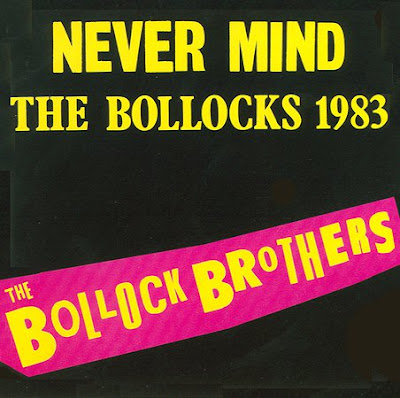Infinite Livez is arguably the closest rap has come to producing an analogy of the Residents. His Bush Meat was amazing and a definite contender for some all time best list or other, so I bought this and probably listened to it once. Being the work of Infinite Livez, I knew it would be screwy, but I suppose I wasn't prepared for just how screwy it turned out to be - almost like one of those things which isn't actually rap but, on close inspection, turns out to be some pal of Damien Hirst recontextualising an intrigueing blend of improvised jazz, situation comedy, world music, soul, French cuisine, Nordic cinema, a different type of improvised jazz to the first batch, Andy Warhol, and rap. It was what I imagined cLOUDEAD probably sounded like, although as it happens, cLOUDEAD are pretty much a vapourwave version of De La Soul, or summink.
Several million years later, second and third spins suggest I simply wasn't listening hard enough back in 2007. Art Brut is fucking strange for sure, but nothing like so abstract as I remember. Stade - pronounced starred, as in John Le Mesurier starred in Dad's Army - seem to be one of those laptop glitch outfits, although not bearing quite such a sonic resemblance to Farmer's Manual as I recall. The noises, clangs and beeps cohere into solid beats on a couple of tracks, whilst Infinite Livez' random vocal outbursts and apologies for being disgusting likewise assume rhythm and soul at certain intervals, leaving us with an album which allows some insight into what might have happened had Marvin Gaye been a member of Nurse With Wound; and I'm not shitting you here. I had no idea Livez was in possession of such a soulful singing voice as he demonstrates on tracks like webcamwoman.co.uk, even though the contrast of vocal style and subject is truly disorientating. Imagine if R. Kelly had possessed actual talent and had been a bit more up front about what he used to get up to in his spare time. Actually, while we're here, Infinite Livez pisses all over D'Angelo as well, although thankfully not in any literal sense.
It seems that everybody else had the same reaction to this when it came out. We listened to it once and decided it wasn't proper rap, an argument which I now understand to be bollocks, and an argument which doesn't matter because Art Brut fe de Yoot sounds like nothing else I've heard - pants-pissingly stupid yet with bathfuls of heart and soul. The one after this was called Morgan Freeman's Psychedelic Semen, and needless to say has just been added to the list.




